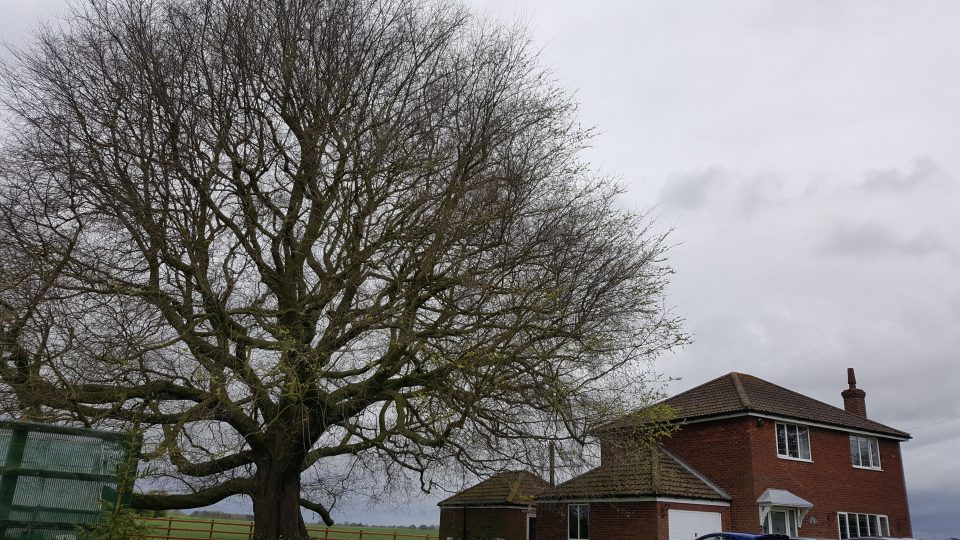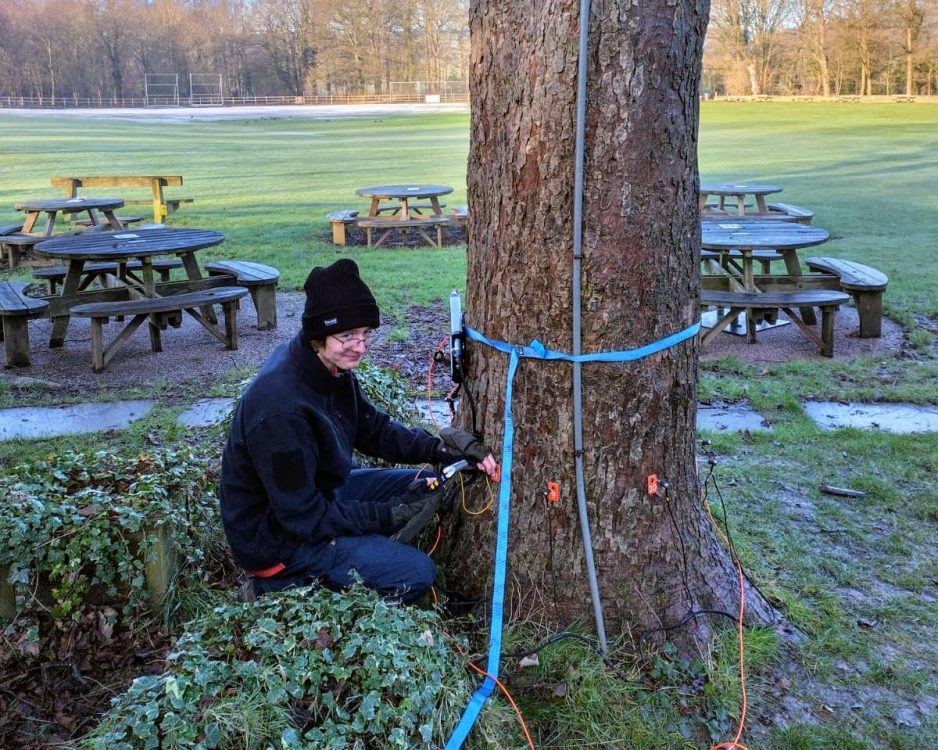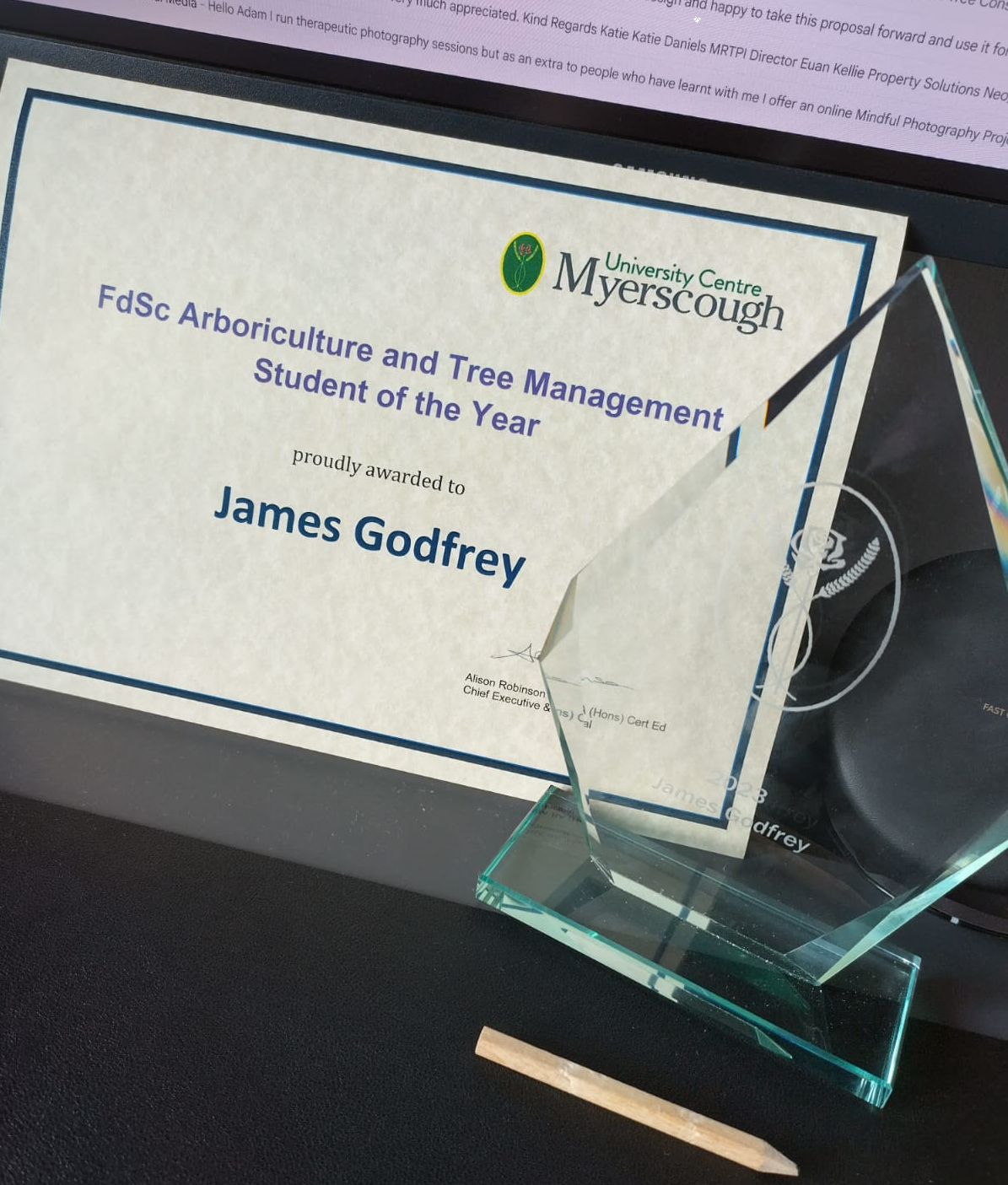
Academic Achievement in Arboriculture
24th October 2023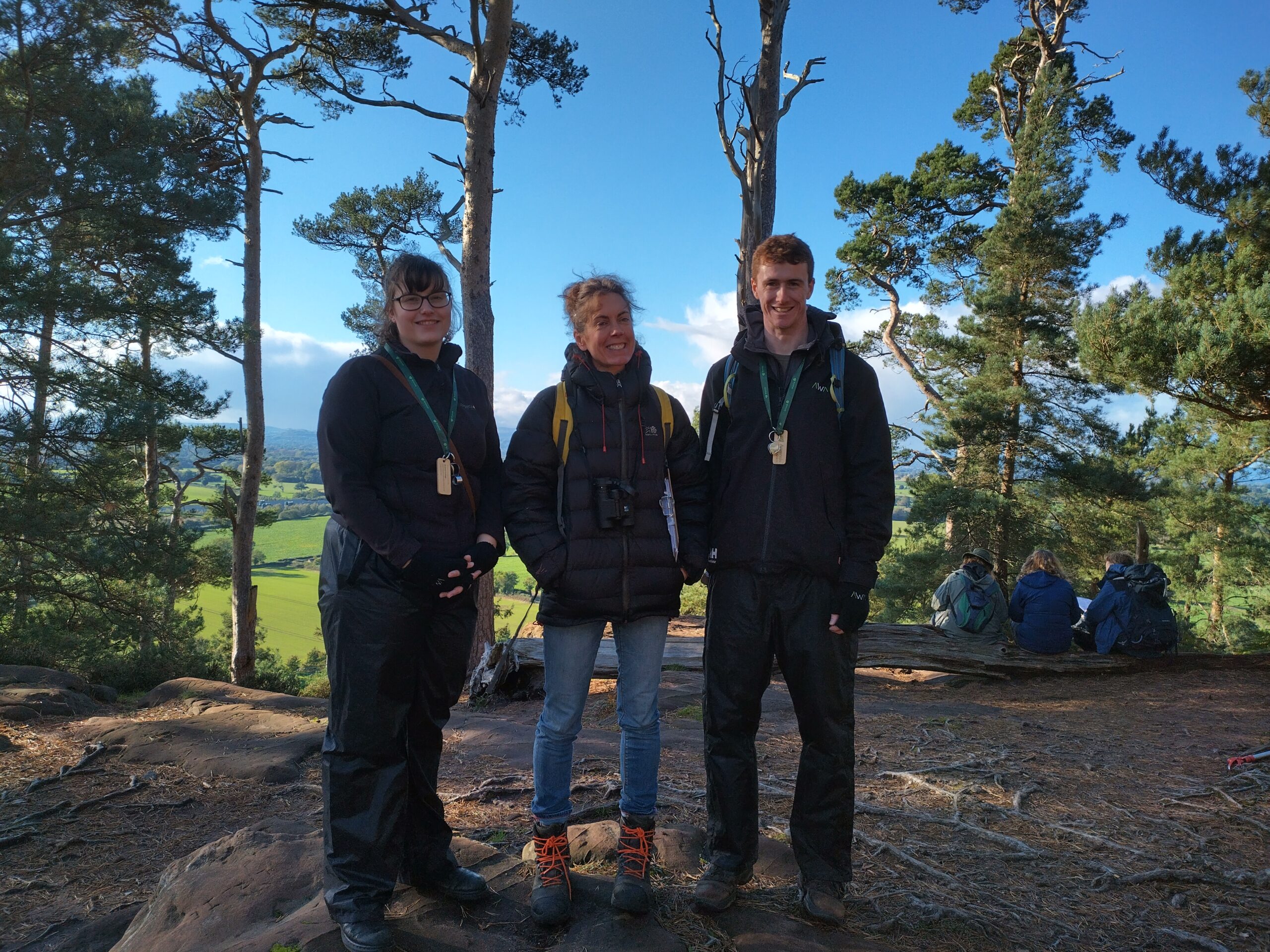
A Masterclass in Identifying Conifer Trees
3rd November 2023Fungi: Vital for Trees and Arborists
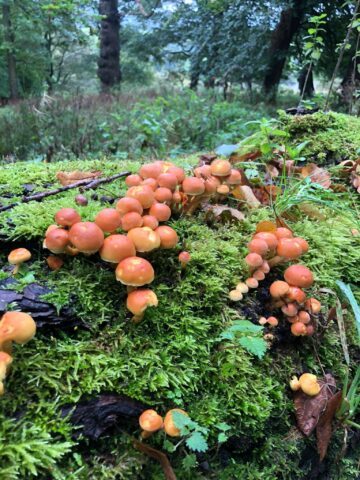
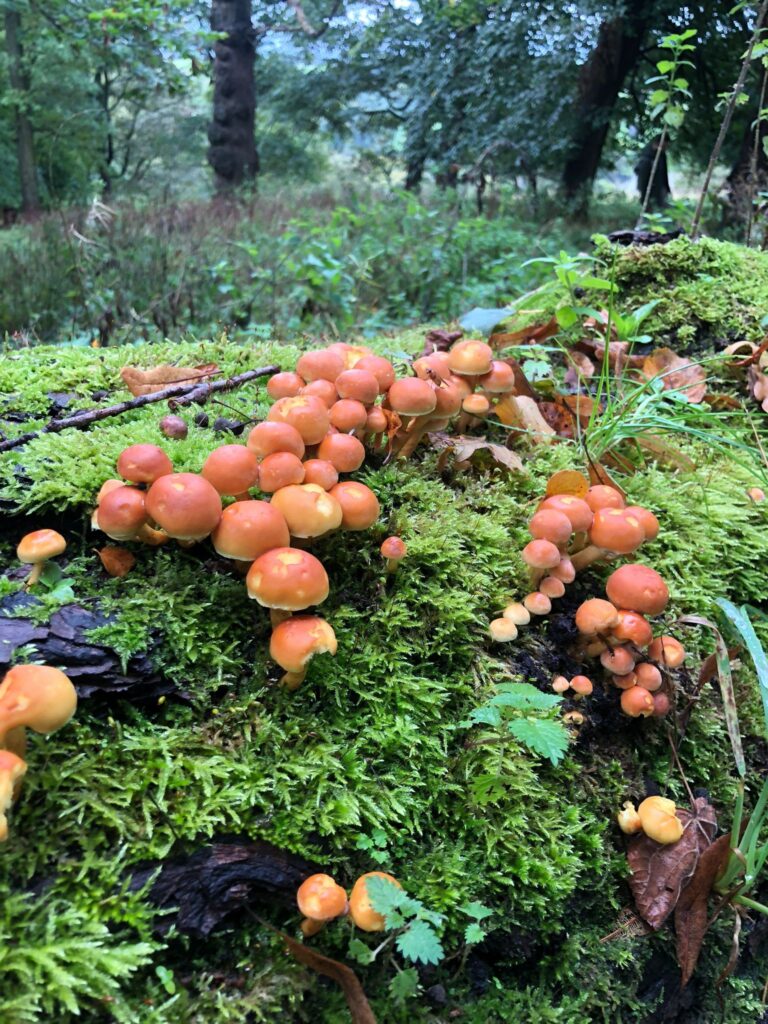
Last month, the tree survey team at AWA Tree Consultants embarked on a journey of discovery into the fascinating Kingdom of fungi! Through attending the ‘Learning Fungi Identification Skills’ workshop at Whisby Nature Park in Lincoln and the ‘Practical Fungi Field Skills’ course at Haddon Hall, Derbyshire (both organised by the Field Studies Council), our team broadened their knowledge and appreciation of the often-misunderstood fungi kingdom.
Arborists and tree consultants have tended to focus on the wood decay fungi that are regarded as pathogens, yet this review aims to emphasise the essential role that a deeper understanding of fungi plays for arboriculturists and highlights the crucial symbiotic relationship between trees and fungi.

The ‘Practical Fungi Field Skills’ course at Haddon Hall course was aimed at beginners looking to learn more about the fungi around them and start to identify fungi groups. We were able to observe and interact with fungi in their natural habitat, gaining practical skills in assessing fungi groups and using basic keys to identify them and understand their different roles within the ecosystem.
The ‘Learning Fungi Identification Skills’ workshop at Whisby Nature Park was a more advanced course which proved to be an eye-opening experience for our team. The instructor provided comprehensive training on the diverse types of fungi, equipping our arboriculturists with vital tools to accurately identify fungi species.
By focusing not only on the pathogenic “bad rotters” but looking at the wider fungi kingdom, the workshop successfully broke the tendency to overlook the beneficial symbiotic relationships that exist between trees and fungi. This in-depth training highlighted the importance of viewing fungi as more than just detrimental pathogens but as vital partners in the tree’s life cycle.
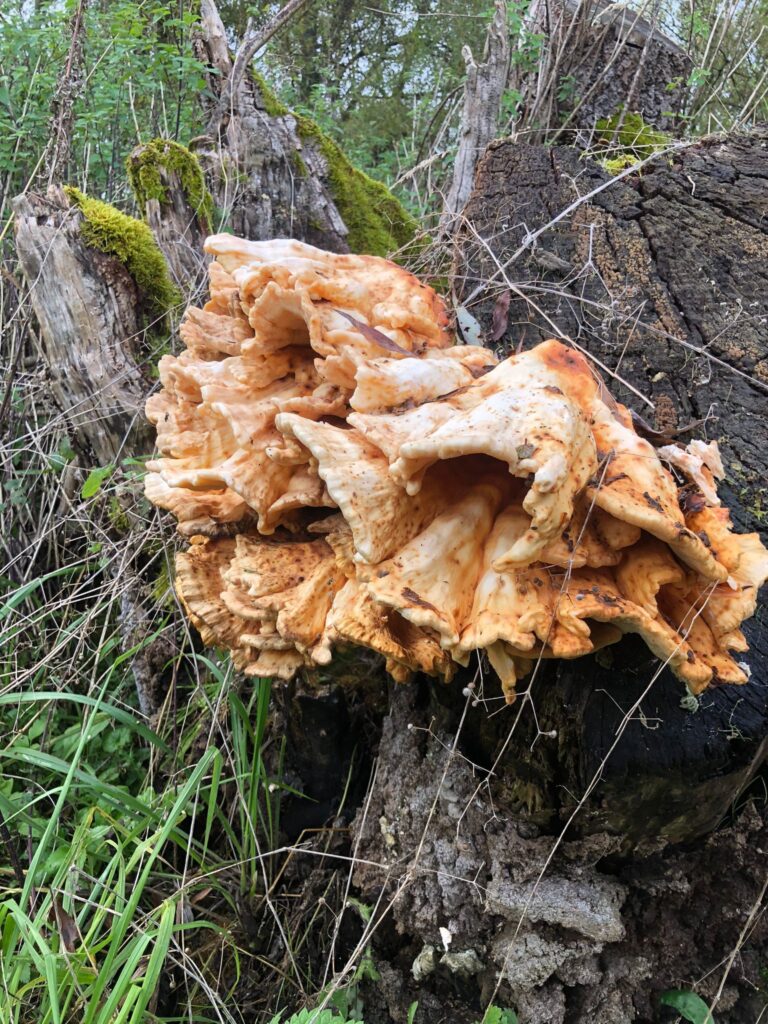
Saproxylic decomposer fungi on a tree does not necessarily mean that the tree has been significantly weakened. Saproxylic decomposer fungi break down wood, which releases elements, such as carbon, nitrogen and potassium, while also maintaining a humus layer in the soil. The associated hollowing of trees by fungal decay, is a natural part of the ageing process, which can benefit trees.
One of the key highlights of this training was the emphasis on the symbiotic relationship between trees and fungi. Arborists need to recognize the immense benefits that fungi bring to tree health and ecosystem balance.
Mycorrhizal fungi form symbiotic associations with the roots of trees and spread out into the surrounding soil, gathering mineral nutrients for the tree like an extension of the root system – in return, the tree provides a proportion of its carbohydrates. This makes them indispensable allies of trees.
By strengthening our understanding of this intricate connection, arboriculturists undertaking tree surveys can enhance their ability to diagnose and treat tree health issues effectively.
It is vital the notion that that fungi are detrimental to trees is debunked and our recent training highlighted the need for a broader understanding of their role in the ecosystem.
A tree can no longer be assessed in isolation. Every tree is associated with fungi, so by nurturing a more comprehensive knowledge of the wider fungi kingdom and their symbiotic relationship with trees, arboriculturists are better placed to make holistic management decisions.



